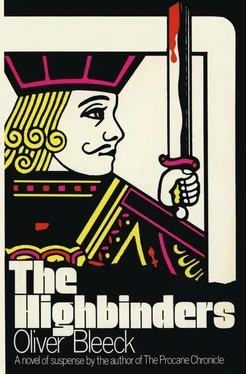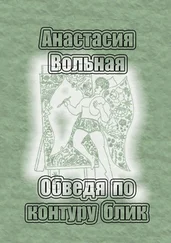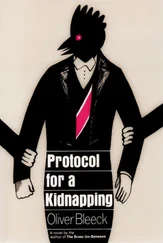The furniture was not quite bad enough to be awful, but almost. There was a single bed that doubled as a sofa, a couple of straight-backed wooden chairs, an “easy” chair that looked anything but that, a bridge table that seemed to be serving as desk, dining table, and a place to practice poker hands, a gray rug, and a large old armoire that must have held Styles’s wardrobe.
Styles didn’t apologize. He only said, “It was about what you expected, wasn’t it?”
“You’re very neat, aren’t you?” I said, which was the only thing I could say that came close to being nice.
“Habit,” he said and opened the wooden chest that supported the two-burner stove, took out a bottle of Scotch, and poured two drinks into glasses that I suspected had once held jam. Or maybe marmalade. He ran some water from the bathroom basin tap into the glasses and handed me one. “Sorry, but I don’t bother with ice because the Fridge only makes six small blocks.”
“That’s okay,” I said.
Although I didn’t time him, I think it took no more than four minutes, and possibly less, for Robin Styles to serve up one of the best omelets I have ever had. He moved like a skilled chef in that corner that was his kitchen. He broke four eggs into a bowl, using only one hand to do it, a trick that I’ve never been able to master. While he was beating them, he had a large copper omelet pan, possibly the best piece of furniture in the place, heating on one of the burners. When the pan was hot, he dropped in a chunk of butter and went back to beating his eggs with a wire whisk, stopping only to dump in a pinch of this and a pinch of that from some containers that looked suspiciously like old cold cream jars.
The eggs and the butter were ready at the same time, something else I’ve never been able to arrange, and he poured the eggs in and then began moving the pan back and forth over the flame while using a rubber spatula to stir the top portion of the eggs so that they would cook properly. It was a little like rubbing your stomach and patting the top of your head at the same time — far harder to do than it looks.
In less than a minute, and probably closer to thirty seconds, he removed two plates that had been warming, set them on the card table, brought the pan over, gave it a sharp rap with a knife, and I watched the omelet fold over perfectly. Then we sat down and had Scotch and possibly the world’s best omelet for breakfast. Or late supper.
“You do a lot of things well, don’t you?” I said.
“Not really.”
“Do you ride?”
“I once did, but I had to give it up. Too expensive, you know. There was a little talk about my entering international competition, but it was only that. Talk. I also shoot and I once went in for a bit of amateur sports-car racing; I’ve sold a few paintings and even some rather stylish photographs. I’ve written a few reviews for The Observer. And I play the piano a little like Duchin and poker like a guppy.”
I leaned back in the wooden chair and lit a cigarette.“You could really enjoy it, couldn’t you?” I said. “Being rich, I mean.”
“Oh, yes. Definitely. There are any number of splendidly expensive things that I have done and could still do, if I had the money. Although I do all of these other things rather well, I just can’t gamble. I don’t know why, but the more badly I play, the more I must. Simply must.”
“I’ve known some who’ve quit,” I said. “Compulsive gamblers.”
“Not ahead?”
“No, not ahead. They’d lost it all.”
“How were they? After they’d quit, I mean.”
I thought about it. “Paler, I suppose. And quieter. Much quieter. It seemed as if they were listening for something.”
Styles was silent for a moment. Then he said, “I thought it was all going to be so simple. I mean after they told me what the sword really was. I thought I was going to be enormously rich and that I would put most of it away somewhere so that I couldn’t touch it and live off the income. Live jolly well, too.”
“Maybe you still can,” I said.
He shook his head. “I don’t know. It’s all grown so damned complicated. Tonight, for example.”
“Tonight was simple,” I said. “I won a lot of money. Wes Cagle lost a lot. You dealt.”
“Not that. It was when you showed him that half of a playing card. I didn’t think I should say anything then. I’m not sure why, but—” His voice trailed off.
“But what?” I said.
“Well, this,” he said. He brought out his wallet and flipped something onto the table. It was half of a playing card, half of a one-eyed jack of spades. He watched as I reached into my own wallet, took out the half I had, the half that I had lifted from the wallet of the dead Billy Curnutt, locksmith, and moved it across the table until its torn edge reached the other half. They fitted perfectly.
“Where’d you get yours?” I said.
Styles looked uncomfortable. “I’m not really sure that I should tell you.”
“You’d better,” I said, “or Eddie Apex is going to be looking for a new go-between.”
“I don’t understand it really,” he said. “You see, this torn card was given to me just after I was first approached by Apex and the Nitrys. It was just a few days after that, before the sword had even been stolen. I was flushed with how rich I was going to be, so I really didn’t think much of it. I suspect that I thought that it was all part of the romance and intrigue that seemed to envelop the entire thing.”
“Who gave it to you?” I said.
“It was given to me one afternoon — when we were alone. And the person who gave it to me said that if anything ever happened and the deal for the sword didn’t come off, and somebody simply tried to hand me back the sword and advised me to go peddle it somewhere else, through legal channels, I suppose, I was not to do so. Not unless the matching half of this card was presented to me along with the sword.” He paused. “It was all — well, so melodramatic that I really didn’t pay much attention. But now you have the missing half. And I don’t understand.”
“Who gave you the torn jack?” I said.
He bit his lip and I don’t think he was much of a lip biter. “Well, it was Ceil. Ceil Apex. Eddie’s wife.”
“She was the one then, wasn’t she?” I said. “The woman that you had to have that afternoon that Eddie Apex told you how rich you were going to be. It wasn’t a whore. It was Eddie Apex’s wife. That must have added a touch of titillation.”
“It wasn’t that way. I’ve known Ceil for years. I knew her before she ever met Apex. We were very close, in fact, at one time. Very close, and then we just drifted apart — the way it happens. Then when we met at Apex’s, we both knew it was going to happen again. At least once, anyway. And when it did, she gave me the torn card and told me just what I’ve told you. But from the look on your face, I don’t think you believe me.”
“That’s just another one of the reasons that you shouldn’t play poker,” I said.
“Then you believe me?”
“Yes, I believe you.”
“Well, I’m afraid I don’t understand.”
I took my half of the jack and put it back in my wallet. “I’m going to give you some advice. You do exactly what Ceil Apex told you to do.”
“You mean I shouldn’t accept the sword if they try to turn it back to me?”
“Not unless the other half of that jack of spades goes with it.”
“But you’ve got the other half.”
“That’s what I mean,” I said.
The ringing phone awoke me at eleven o’clock that morning and on the other end was the aged Apex butler, Jack, once known as Gentleman Jack Brooks, notorious jewel thief and scourge of the Riviera.
Читать дальше











